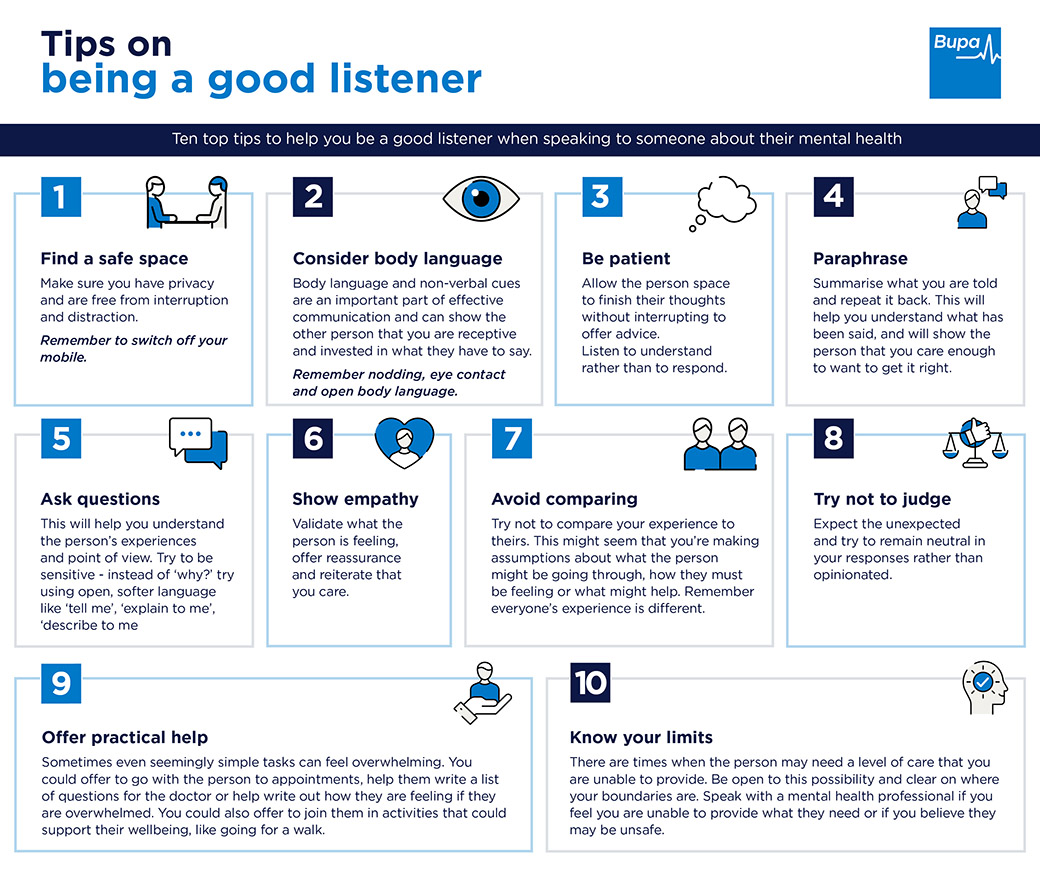The importance of talking about our mental health and wellbeing is well known. Reaching out to a trusted person when our mental health is being negatively affected can be a positive step.
However, it is just as important to know how to respond when someone reaches out to you. A friend, colleague or family member might tell you they have been experiencing challenges with their mental health. This may include feeling lonely, anxious, angry, or sad, struggling with negative thoughts or avoiding social interaction.
While it is good to understand the importance of talking about mental health and how to respond if someone reaches out, it is equally important not to allow the fear of saying or doing the wrong thing stop you from checking in on someone.
It can feel daunting when someone chooses to trust you with such personal information, but the way you respond and the language that you use can make all the difference. Being open and empathetic, and showing compassion without judgement can help the person feel safe and heard, and that their feelings are valid which, sometimes, is all a person may need.
While it is good to understand the importance of talking about mental health and how to respond if someone reaches out, it is equally important not to allow the fear of saying or doing the wrong thing stop you from checking in on someone. If you notice that someone you care about is behaving out of character (perhaps they seem quieter or more irritable), check in with them. It's not likely you’ll make matters worse and even if they may not want to talk, it can still be meaningful for them to know you care.
From creating the right environment to choosing appropriate language and recognising non-verbal cues, here are ten tips to help you support someone with their mental health.

If you are experiencing challenges with your mental health (for example stress, anxiety, low mood, anger, loneliness), remember that support is always available. Reach out to a healthcare professional, and also consider talking to a trusted friend or loved one. They may be able to encourage and support you in finding the help you need.


